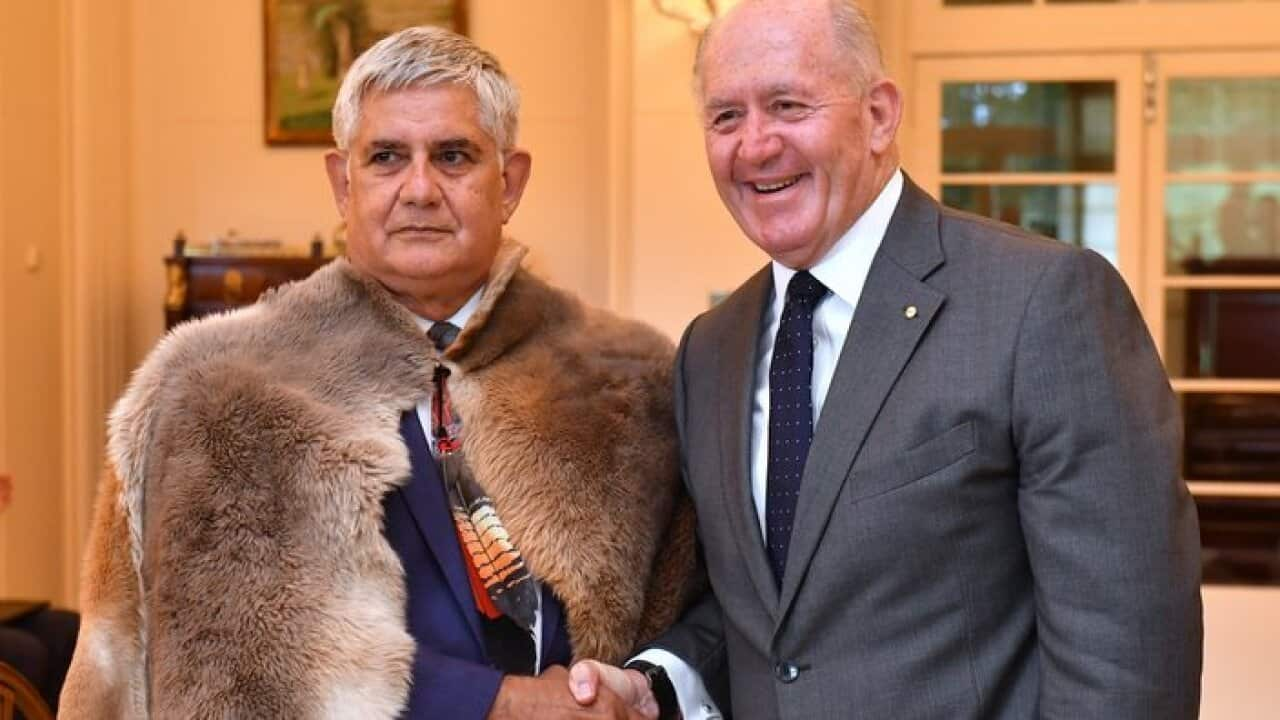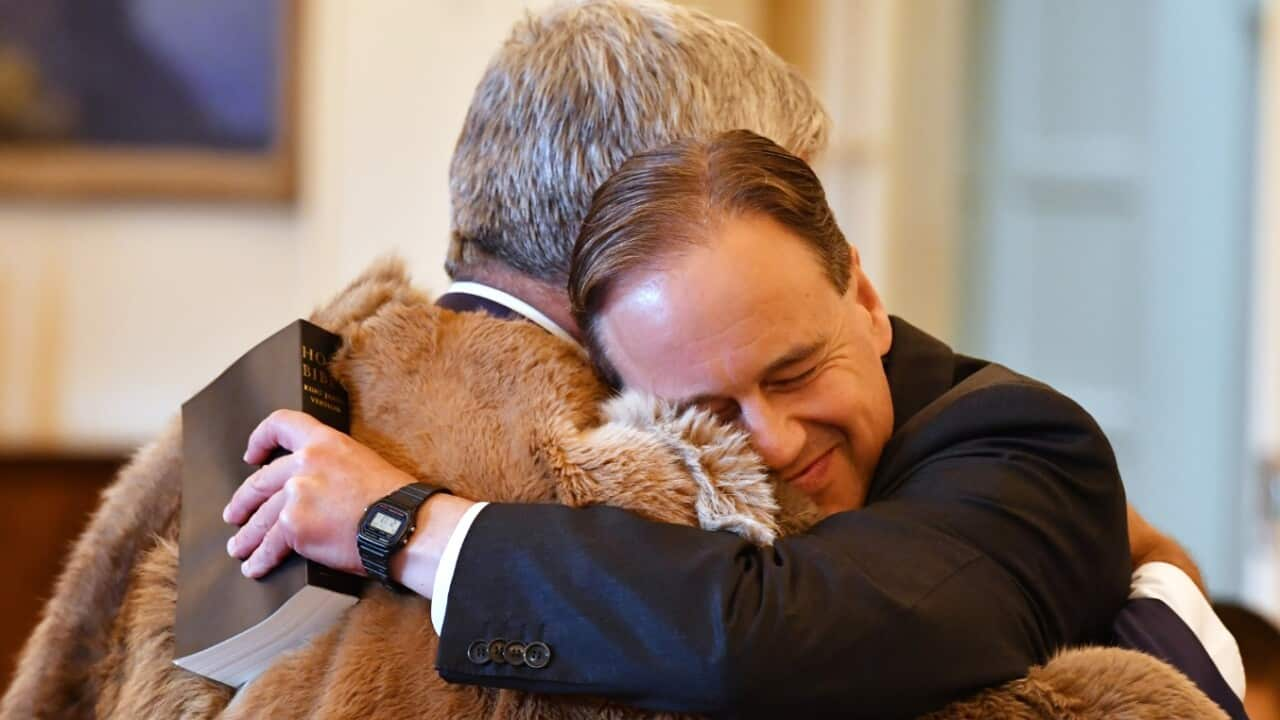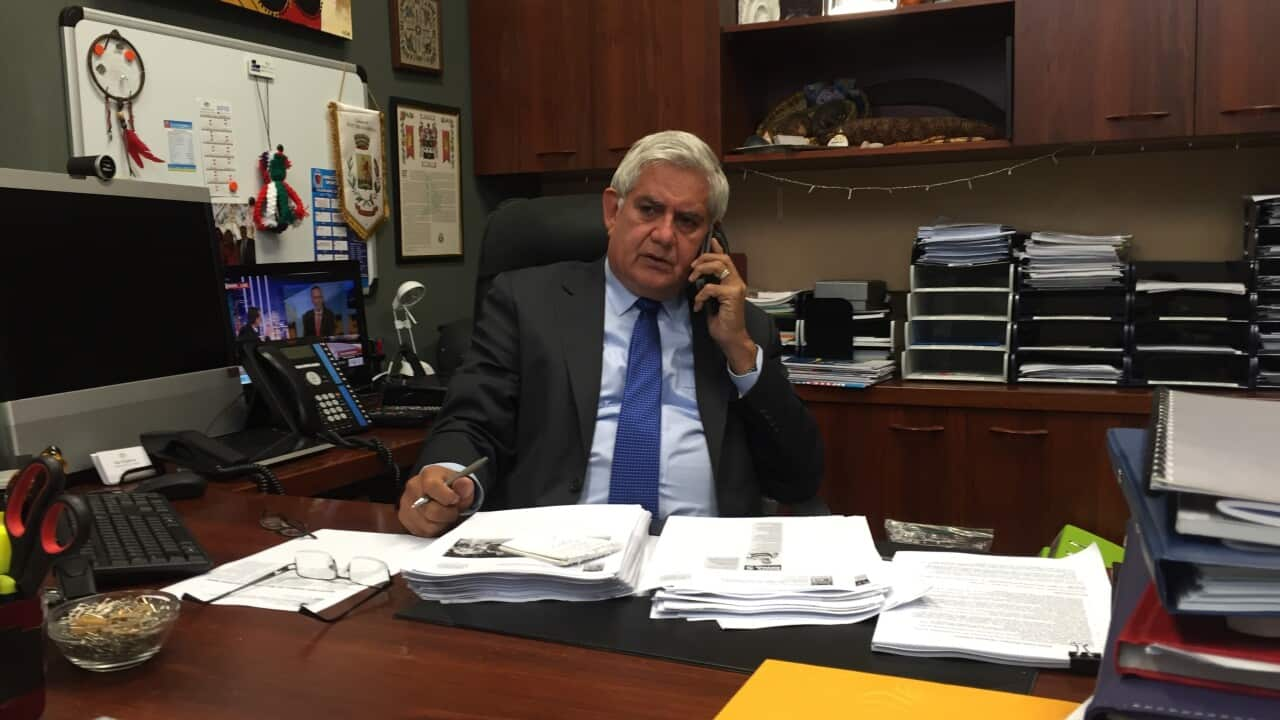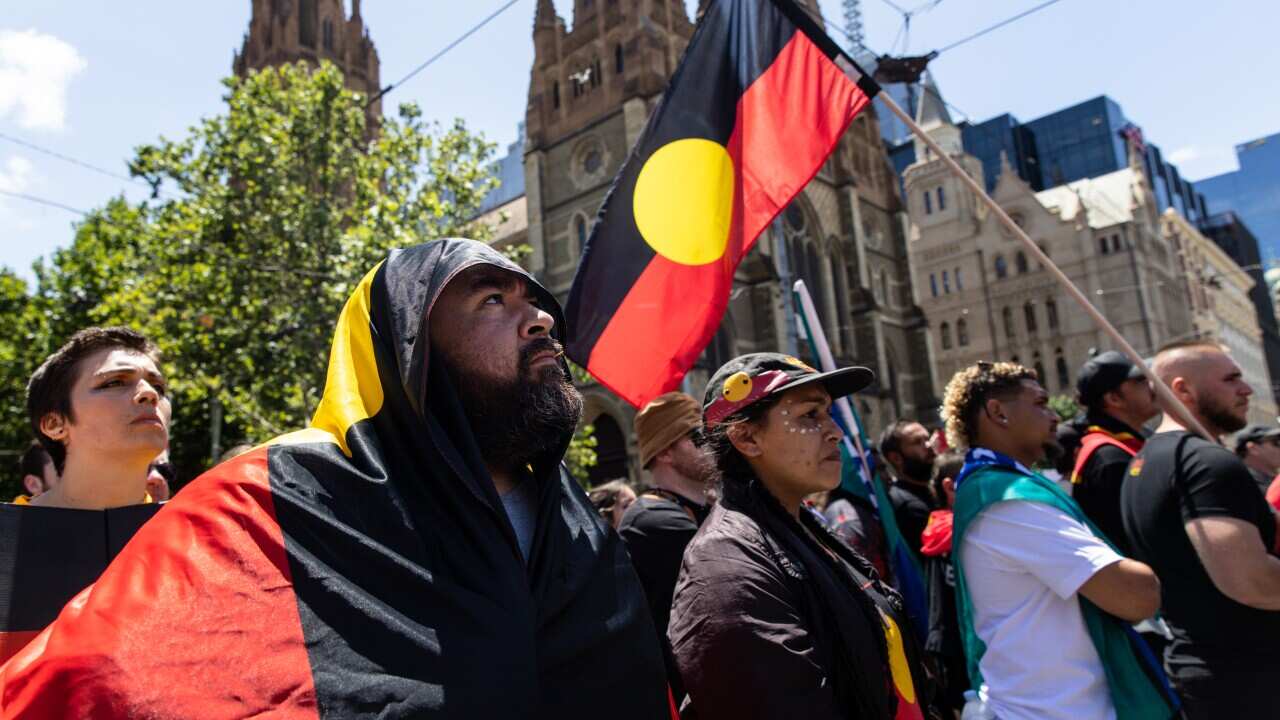Ken Wyatt was sworn in earlier this year as the Minister for Indigenous Health and Aged Care making him the first Federal Indigenous minister in Australia's history.
Draped in kangaroo skin, Ken entered federal politics proud of his culture and identity, and making his family even prouder.
"I know if my parents were alive my mother would be absolutely full of pride that I'd have to keep reminding her to stay grounded. My brothers and sisters are immensely proud of my achievements," he told The Point. His political career began in 2010 when he became the first Indigenous member of the House of Representatives, making history.
His political career began in 2010 when he became the first Indigenous member of the House of Representatives, making history.

Ken after a swearing-in ceremony at Government House in Canberra. Source: AAP
But Ken is modest, and says he doesn't think too much about historic firsts in his role.
"I made a comment to a friend: I don't see myself as an historic figure and they said 'but you're going to have to accept the reality of that in years to come after you've gone, people will talk about the fact that you're the first Indigenous person elected to the House of Reps, the first Indigenous member because it took 200 plus years to do it'," he says.
My grandfather and uncles, great uncles who were heavily involved in Aboriginal issues when they were younger men, found some the challenges extremely tough but they never gave up.
It also seems Ken isn't the only pioneer of the family.
Just last month, his nephew Ben Wyatt made his own historic feat.
Ben became the first treasurer with Indigenous heritage in a state or federal government, as part of the incoming Western Australian Labor administration.
"Ben being the first Indigenous treasurer is an incredible achievement from one family," he says.
Ken comes from a long line of prominent public servants and Aboriginal leaders.
His cousins Cedric Wyatt, Ben's father, and Brian Wyatt led a number of areas in Aboriginal affairs including native title and legal services.
"Those two when they were alive, you had the three of us working in different areas influencing governments, challenging practices, but wanting a better future for our people, and particularly younger ones," he says.
But Ken says they've always remained grounded.
"My grandfather and uncles, great uncles who were heavily involved in Aboriginal issues when they were younger men, found some the challenges extremely tough but they never gave up and I think that's something that they've instilled in myself."
In Ken's 2010 maiden speech he revealed another part of his family's story.
His mother, Mona, was part of the Stolen Generation.
"I shed tears for my mother and her siblings. My mother and her siblings, along with many others, did not live to hear the words delivered in the apology, which would have meant a great deal to them individually. I felt a sense of relief that the pain of the past had been acknowledged and that the healing could begin..." he said.
Now seven years later, Ken is a political success story, but some days even Ken wonders how this came about.
"If I was that 10-year-old kid with those skinny ankles that were famous for and someone said to me that you're going to end up in the Australian Parliament and you're end up going to a Minister in somebody's government I would've said no it will never happen its not possible."
I thought I'd never go into politics.
President of the Australian Indigenous Doctors Association, Kali Hayward, says its important to have an Indigenous Minister for Indigenous health.
"It is very important for Aboriginal and Torres Strait Islander doctors to know that there is someone in a position that can affect change and effect decisions being made about Aboriginal and Torres Strait Islander health,” she told The Point.
National Congress of Australia's First Peoples Co-Chair, Rod Little, says Ken just gets it.
"He has come from some of the environments that we’ve come from and I think that is one of the difficulties we have when it comes to politicians who make a presumption that they know whats best for us", he told The Point.
"He wants to see a change, a significant change whilst we’re around and we’ll certainly provide him with support.”
Family life
A Noongar and Yamatji man from Western Australia, Ken was born in Bunbury in 1952. The son of a railway ganger and a domestic worker, he was the eldest of ten. His mother grew up on Roelands Mission, where hundreds of Aboriginal children were taken to during the 1930s to 1970s.
After Ken was born the family moved to the railway station at Nannine, 735km north-northeast of Perth, then to Corrigin where he went to school. He excelled and with the encouragement of teachers and the local community he was sponsored to finish high school in Perth. He went on to train as a teacher then moved into Indigenous health policy.
He excelled and with the encouragement of teachers and the local community he was sponsored to finish high school in Perth. He went on to train as a teacher then moved into Indigenous health policy.

Ken (in middle) with his mother and sisters Source: Supplied
Ken was inspired in his endeavours by Australia's very first Aboriginal federal politician, Queensland senator Neville Bonner.
Our mob are more demanding of us, they're more harsher in their words, and they tell like it is.
"I watched Neville's career and I got to know Neville and he was just an incredibly gentle man within the work that he did. And I asked him about some of the challenges and he experienced some incredible challenges whilst he worked in the Parliament and that's why I thought I'd never go into politics," he says.
But he did, finding his way around the Parliament and the Australian political landscape.
Indigenous politics
As tough as domestic politics is in Federal Parliament, Ken makes a point that Indigenous politics is tougher still.
In fact, he sees his toughest critics as his own community.
"Our mob are more demanding of us, they're more harsher in their words, and they tell like it is. If they think you're getting too big for your boots, you know the expressions they sometimes use. I'm more nervous addressing five hundred of them than I am addressing five hundred non-Indigenous leaders."
Despite the challenges, Ken remains devoted to the cause.
"I've got to try and balance family life commitments and that's always with both my sons as well as the needs of the constituents of Hasluck. But also for me Indigenous constituents across the country because a lot of our people call through this door," he says.
Ken hopes he leaves a legacy that Federal members he's worked with acknowledge the Aboriginal people that have worked in the house. "That's why we now have five of us."
"That's why we now have five of us."

Australia's Assistant Minister for Health and Aged Care Ken Wyatt addresses the United Nations special session on global drug policy. Source: AP
"I think within two decades we will have an outstanding Indigenous leader who will come into this place whose peers will say we think that you are worthy of support for a journey into leadership," he says.
To Ken, the importance of having Indigenous voices represented far outweighs which party you stand for.
"Because when were elected equal to any other peer and we've made it by virtue of the fact that we've been able to tell people that we're worthy of their support and because of that we can then stand and say that I was elected in the same way as you. I have a voice, I have ideas and I have plans for the future, and that's been a very powerful journey for me."
As Ken's journey continues, it is hoped that others will follow in his footsteps.















